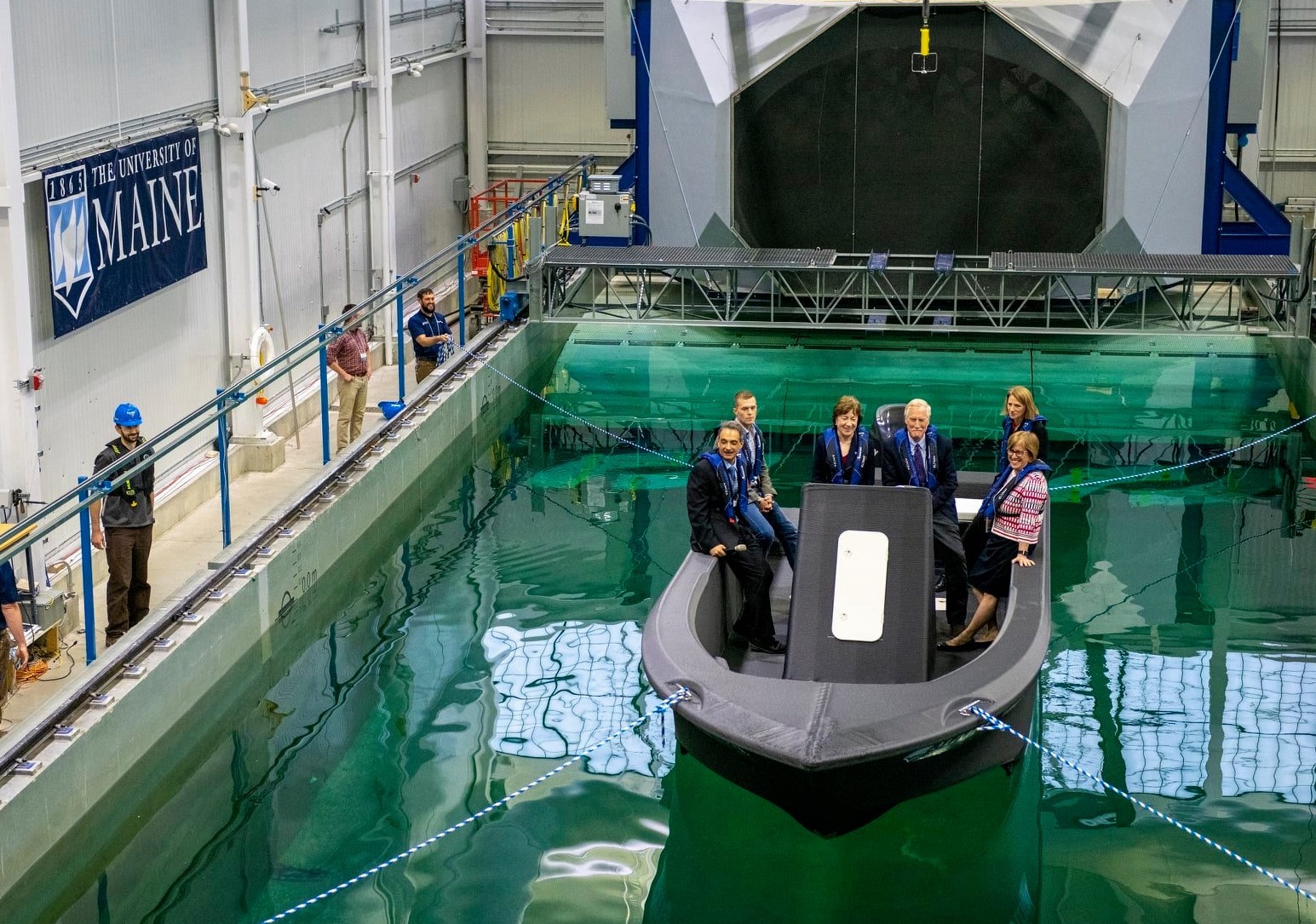COLUMN: Innovation is Fueling Maine’s Forest Products Industry

Click HERE for a high-resolution photo.
Maine just made the Guinness World Records. Not for anything like eating hot dogs or skipping rope, but for leading the world into a new era of environmentally responsible advanced manufacturing.
On Oct. 10, the University of Maine’s Advanced Structures and Composites Center unveiled the world’s largest 3D printer that produced not just the world’s largest 3D printed boat but the world’s largest 3D printed object of any type. Guinness, the legendary keeper of records, confirmed all three of these unmatched achievements.
This event was a wonderful preface to National Forest Products Week, which runs from Oct. 21-26. It is a time to celebrate both our heritage and a bright future exemplified by the exciting UMaine project. The printer – 70 feet long with a planned extension to 100 feet – produced a 25-foot boat in 72 hours.
In addition to the record-breaking boat, UMaine demonstrated that it can produce a bio-based, cutting–edge material that is strong, durable, and recyclable. During this same event, UMaine showcased a 3D printed boat mold that was made from a combination of wood and corn fibers and developed alongside Hodgdon Yachts.
Just as important, this project provides exciting new opportunities for Maine’s forest-products industry. It is a collaboration between the Oak Ridge National Laboratory in Tennessee, which is a global leader in the additive manufacturing techniques that form the basis of 3-D printing, and UMaine, a global leader in bio-based composites research and development. Together, these two strengths will improve environmentally responsible advanced manufacturing throughout America and strengthen the forest-products industry right here in Maine.
I worked hard to secure $20 million in federal funding for this exciting collaboration this year. In addition, the Appropriations Committee on which I serve has approved another $20 million for the next fiscal year. This project is an outstanding example of our national labs working cooperatively with universities to support new technologies. In addition, I championed the $454,000 federal grant awarded to UMaine to establish the Mass Timber Commercialization Center. Our University and our forest-products industry have the vision and expertise to discover innovative ways to develop new products from our natural resources.
Throughout Maine’s history, our forest products industry has helped drive local economies and sustain rural communities. As the economy changes, this vital industry is evolving to meet the challenges of the 21st century.
I have seen firsthand this evolution around our state in recent months. The opening of the ND Paper Mill in Old Town, which was shut down for more than three years, along with the reopening of ND’s mill in Rumford, is the result of that company’s vision and Maine’s skilled and dedicated workforce. I also visited the Louisiana-Pacific mill in New Limerick and was so impressed by the innovative laminated strand lumber products they are producing. In Lincoln, I toured Treeline, Inc., a diversified forest products company that manages forest land, harvests, chips, and trucks all kinds of wood to a variety of places.
This summer, I visited the Mechanized Logging Operations Program at an active timber-harvesting site in the woods of Western Maine. MLOP is an outstanding initiative created in partnership among many logging industry partners and Maine’s community colleges. Students enrolled in this training program learn to harvest timber using sophisticated state-of-the-art machines like those they will encounter in the logging industry. It was inspiring to meet these young Mainers who are passionate about learning new skills that will propel them on a promising career path and strengthen our state’s forestry sector.
As our forest-products industry evolves to meet global challenges, the commitment to protecting our precious natural resources remains strong. In September, I joined in celebrating Don Newell as Maine’s Tree Farmer of the Year. Like landowners throughout our State, Don and his family are stewards of our forests and caretakers of the natural resources that are vital to our forest-products industry. In addition, they are the hosts for our increasingly important recreation economy and uphold the Maine tradition of public access to private lands.
I was honored to be called upon to christen the world record boat at UMaine with the name “3-Dirigo,” a play on our State’s motto, “Dirigo,” which is Latin for “I Lead.” Maine truly is the leader in both innovation and in upholding traditional values.